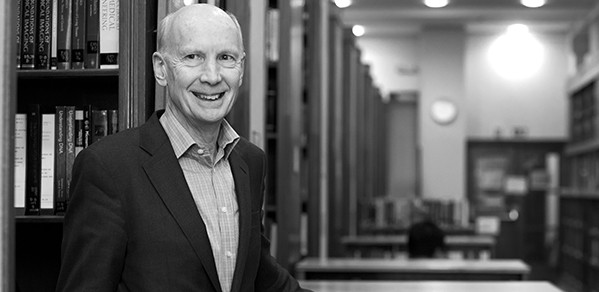
Professor Lord Robert Mair CBE, head of the Department's Centre for Smart Infrastructure and Construction (CSIC), becomes the 153rd President of the Institution of Civil Engineers (ICE).
I see a great and vibrant future for our profession; for infrastructure and for the lives of every person on this planet, regardless of who they are or where they were born. The challenge now is to encourage young people from all backgrounds to join us in this profession, one which has the power – and the responsibility – to literally change the world for the better.
Professor Lord Robert Mair CBE
His presidency, announced today (Tuesday November 7), coincides with the 200th anniversary of the ICE, a body that aspired to meet, head on, the challenges of the day; poor social conditions and health, community division and new engineering possibilities.
Professor Lord Mair, whose engineering career spans more than 40 years, will today give his President’s Address on the theme 'Transforming Infrastructure, Transforming Lives – Building on 200 years' and will set out his objectives for his year of office. His speech will be streamed live from 5pm and will feature a live Twitter wall. You can participate in the Twitter conversation during Professor Lord Mair’s speech, by tweeting using #ICEaddress.
Professor Lord Mair will discuss the challenges of the 21st Century; climate change, population growth and rapid urbanisation and how civil engineers can transform, for the better, the lives of millions of people.
He will outline how civil engineers today are as innovative and dedicated to solving problems now, as they ever were, and he will look at how the profession can use technology to improve infrastructure assets, transforming the industry, and transforming the societies it serves.
Lastly, he will set out the opportunity for the civil engineers of today to solve the current global challenges and encourage the next generation to rise to these challenges by becoming engineers.
“Throughout my career, I have seen first hand how engineers can transform lives and I’m excited at the prospect of a whole new era of smart technology,” said Professor Lord Mair.
“I plan to use the opportunity of my presidency to help make the profession of civil engineering fit for a digital future and ready for the potential changes to the way infrastructure is delivered.
“I see a great and vibrant future for our profession; for infrastructure and for the lives of every person on this planet, regardless of who they are or where they were born. The challenge now is to encourage young people from all backgrounds to join us in this profession, one which has the power – and the responsibility – to literally change the world for the better.”
About Professor Lord Robert Mair CBE
He graduated in 1971 from the University of Cambridge, where he read Engineering at Clare College, and worked continuously in industry until 1998, except for a three-year period in the late 1970's when he returned to Cambridge to work for his PhD on tunnelling in soft ground.
He was appointed Professor of Geotechnical Engineering at the University of Cambridge in 1998. He was the Sir Kirby Laing Professor of Civil Engineering from 2011-2017, and Master of Jesus College from 2001-2011. He was also a Fellow of St John's College from 1998-2001.
He is also one of the founding Directors of the Geotechnical Consulting Group (GCG), an international consulting company based in London, which started in 1983. He was awarded a CBE in the 2010 New Year’s Honours list; appointed Chief Engineering Adviser to the Laing O'Rourke Group in 2011; and appointed as an independent crossbencher in the House of Lords in 2015.

